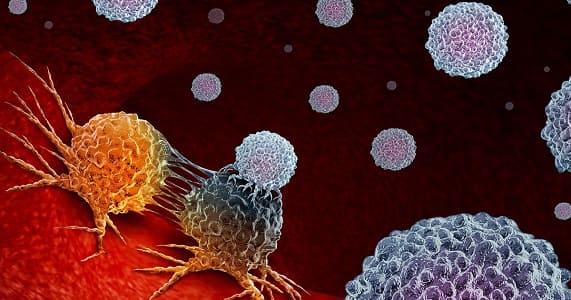Cancer immunotherapy, commonly referred to as "Immuno-oncology," makes use of the immune system's capacity to prevent, manage, and eradicate cancer. Immunotherapy can teach the immune system to recognize and attack particular cancer cells.
To help the battle against cancer, strengthen immune cells.
Adding more nutrition to the body will help the immune system respond more effectively.
Biotherapies, such as immunotherapies, which also go by the name of biologic therapy and biological response modifier (BRM) therapy, use components from living organisms to treat disease.
Some immunotherapy procedures are referred to as gene therapies because they use genetic engineering to enhance the ability of immune cells to combat cancer.

It is possible to increase the effectiveness of several immunotherapy treatments for cancer management, prevention, and treatment by combining them with targeted therapies, surgery, chemotherapy, or radiation.
For a month's worth of treatment, immunotherapy medications cost anything from Rs 80,000 to Rs 1 lakh. The reduced dosage may also be sufficient in some people to "charge" the immune system sufficiently to combat cancer cells.
The immune system: What is it?
Organs, antibodies (proteins), and immune cells make up your immune system, which functions as a team to combat sickness and infection.
The following are immune cells:
The immune system monitors every substance that is often found in the body. The immune system launches an attack whenever it encounters a new chemical that it cannot recognize.
The immune system targets them because it sees them as "foreign". It is possible to eliminate anything harboring an alien substance, such as germs or cancer cells.
The immune system, on the other hand, has a tougher time recognizing cancer cells. It is because cancer begins when normal, healthy cells are transformed or modified and begins to grow out of control. The immune system does not always recognize cancer cells as foreign since they begin as normal cells.
There are numerous approaches to treating cancer with immunotherapy. Here are a few illustrations:
Cancer Immunotherapy for Breast
The current range of treatments for breast cancer typically includes surgery if it is found early. Depending on the molecular characteristics and stage of cancer at the time of diagnosis, immunotherapy, chemotherapy, or radiation may be used in the treatment of breast cancer.
A relatively recent form of treatment for breast cancer is immunotherapy, which makes use of your immune system to locate and eliminate cancer cells. Although chemotherapy and radiation therapy are still the predominant treatments for breast cancer, immunotherapy has the potential to cure triple-negative breast cancer, metastatic breast cancer, and recurring breast cancer.
Unlike chemotherapy, immunotherapy does not always cause tumors to shrink. Tumors may enlarge or increase in size even in healthy individuals when immune cells battle malignancy. The scientific word for this event is pseudoprogression. The phrase alludes to the possibility that patients may still benefit even while a tumor only seems to be getting worse.
You'll need to see your doctor periodically to monitor the effectiveness of your therapy. Regular physical exams, blood tests, and imaging scans might be carried out.